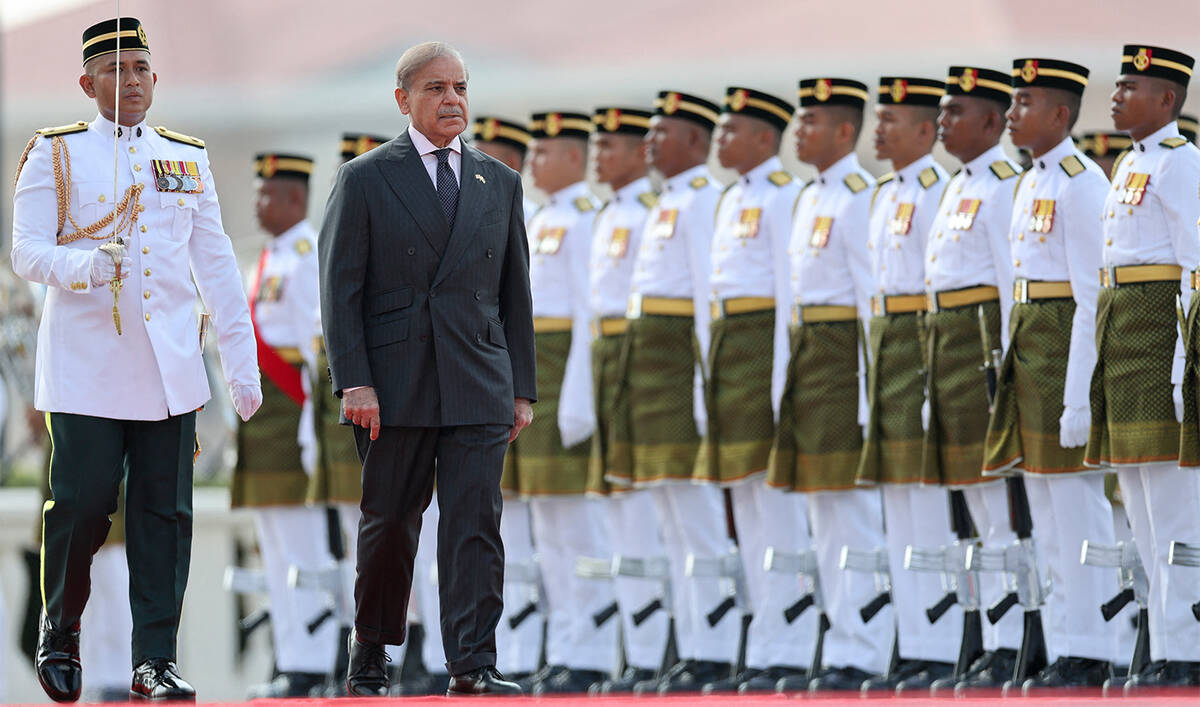HYDERABAD, Pakistan: On a busy street in PakistanŌĆÖs southern city of Hyderabad, the red-brick fa├¦ade of Besant Hall now stands with quiet dignity, its symmetry and arches evoking a bygone era.
For much of the last century, the colonial-era landmark embodied the cityŌĆÖs intellectual and political energy. But in recent decades, the building fell into despair, its walls cracked, doors eaten by termites and halls used as a den by addicts.
Named after British socialist and theosophist Annie Besant, the hall was inaugurated by her in 1917 during the height of the Indian independence movement. For decades it remained a space for reformist gatherings, but its fortunes declined after the partition of the Subcontinent in 1947. By the 1980s, it was reduced to a marriage hall before being abandoned entirely.
In 2019, the Endowment Fund Trust (EFT) of the Sindh provincial government stepped in, launching an ambitious restoration project. The task was painstaking: red bricks were brought from Lahore to replicate its original look, layers of lime and cement that had dulled its character were replaced, and termite-infested windows rebuilt. Archivists salvaged fragile materials, some so badly infested they caused skin reactions in handlers.
Today, Besant Hall has been returned to life. Its rooms once again ring with the voices of students, scholars, and artists. The restored structure now houses the Jehangir Siddiqui ChildrenŌĆÖs Library and the Syed Abdullah Shah Scholar Library, and regularly hosts book readings, exhibitions, and cultural programs.
ŌĆ£This building, Besant Hall, was given to Annie Besant on lease in 1901 by Col. Alcot,ŌĆØ said Sobhia Ali, the director who now oversees the revived cultural center. She did not provide AlcotŌĆÖs full name, but records show a Col. Henry Steel Olcott, co-founder of the Theosophical Society, of which Besant was a member. He died in 1907.
ŌĆ£When we received the building in 2019, it was full of cracks and in a very poor stateŌĆ” It had become a haven for drug addicts. We wiped everything out, restored it, not only restored the architecture but also its cultural and traditional value.ŌĆØ
The building, with its Roman-inspired entrance and Tudor-style windows, is one of HyderabadŌĆÖs most significant surviving colonial relics, and a lasting reminder of the woman it was named after.
SOCIALIST, THEOSOPHIST, WOMEN RIGHTŌĆÖS ACTIVIST
BesantŌĆÖs influence in South Asia was profound.
A British socialist, theosophist, and womenŌĆÖs rights activist, she became the first woman to preside over the Indian National Congress in 1917 and was a leading figure in the Home Rule Movement. The campaign sought self-governance for India, inspired by similar struggles in Ireland and other British colonies.
According to historian Dr. Kaleemullah Lashari, theosophy ŌĆö an occult movement originating in the 19th century with roots that can be traced to ancient Gnosticism and Neoplatonism ŌĆö took root in the Subcontinent by the early 1900s, after Helena Blavatsky and Henry Steel Olcott founded the Theosophical Society in 1875. BesantŌĆÖs arrival in 1893 gave the movement new vigor.
ŌĆ£Many of its offices were established in various cities, with people showing great cooperation. In Karachi, our Theosophical Hall, located in front of Radio Pakistan, is quite well-known,ŌĆØ Lashari said. ŌĆ£Similarly, it also started in Hyderabad, where there was already a movement related to women. Our Hindu women in Hyderabad were very active, socially engaged.ŌĆØ
Author and historian Dr. Zaffar Junejo, whose book Hyderabad and Beyond was published earlier this year, said the hallŌĆÖs history is entwined with the cityŌĆÖs colonial rise.
ŌĆ£The defeat of SindhŌĆÖs Talpur Mirs in 1843 sealed its future within the British Empire. By the 1920s, wealthy Sindhi Hindu merchants, known as Sindhworkies, had transformed Hyderabad into a commercial hub,ŌĆØ Junejo said.
ŌĆ£It is no wonder that [Indian polymath] Rabindranath Tagore called Hyderabad the most fashionable city in all of India.ŌĆØ
Besant Hall, alongside Homestead Hall, also became a vital stage for reformist debate. Its significance deepened when Besant herself launched the Home Rule Movement from its platform. The space was also remarkable for its inclusivity: Muslim leaders such as G.M. Syed and Hyder Baksh Jatoi joined Hindu intellectuals in theosophical sessions, making it a rare non-denominational forum.
ŌĆ£One could say that Besant Hall became an ideal place for educational, social, cultural and political activities,ŌĆØ Junejo said.
But the hall did not survive unscathed through the decades. In the 1990s, ethnic violence between Sindhis and Urdu-speaking migrants reduced its library and reading hall to ashes. Later, land mafias attempted to seize the property.
The EFTŌĆÖs 2019 intervention, under a 10-year agreement with the Hyderabad district government and the Theosophical Society, marked a turning point.
Today, the hallŌĆÖs legacy has been reclaimed. Children study in its libraries, community groups gather for cultural events, and Hyderabadis once again see the red-brick landmark as a living part of their cityŌĆÖs story.
ŌĆ£We have not only restored its architecture but also revived the tradition and the original purpose for which Annie Besant had this building constructed: intellectual gatherings, academic and cultural activities and cultural reforms,ŌĆØ Ali said.

















